


May 17, 2021
“She thinks we’re playing around,” Noxolo Maphosa heard her assailant telling his accomplices as she lay on the ground. Over the course of an hour, the 23-year-old from Bulawayo, Zimbabwe’s second-largest city, had been repeatedly kicked, punched, and slapped by people she suspected were state agents. They were searching for her uncle, a human rights activist who had gone into hiding.
As Maphosa lay on the ground, she feared that her 14-month-old baby would grow up not knowing what happened to her. COVID-19 restrictions meant the area where Maphosa had been abducted from a few hours earlier was nearly deserted, leaving hardly any witnesses to her kidnapping.
Maphosa is one of hundreds of women who have been attacked by suspected state agents during Zimbabwe’s ongoing COVID-19 lockdown. While the government—led by the ruling Zimbabwe African National Union-Patriotic Front (ZANU-PF) party—has a long history of meting out violence against its political opponents, women who are thought to have any connection to social activism are increasingly on the receiving end.
“Now that there are more women being encouraged to participate in the public arena, it means they are more exposed,” says Batanayi Gwangwawa of the Women’s Academy for Leadership and Political Excellence (WALPE), a female rights group. Over the last decade, dubbed the African Women’s Decade by the African Union, women have become more vocal in critiquing the government’s rule.
“Them being more vocal means that the threat is now larger,” Gwangwawa says.
With her head covered and hands bound, Maphosa was questioned over the whereabouts of her uncle, Josphat “Mzaca” Ngulube, who had been targeted by the state after his alleged involvement in a national strike he denies participating in.
A few weeks earlier, armed men had broken into her home and verbally threatened Maphosa and her younger sisters and child, demanding to know Ngulube’s whereabouts. That time, they left her alone when they realized she didn’t know where her uncle was. This time, however, the men who had abducted her were physically violent.
“[One of the men] took a sharp object and started tearing my clothes, leaving me naked, then beat me on my thighs, legs, and other places on my body for some time,” Maphosa says, stuttering out of fear as she recalled the event.
When Maphosa’s assailants stopped beating her, they drove her back home and dumped her at her gate. Medical and police reports later revealed extensive injuries to Maphosa’s thighs and legs. This forced Ngulube to come out of hiding to take Maphosa, her sisters, and her baby out of Zimbabwe to South Africa, where they now live in a secret location.
“I can’t work because I fear they are looking for me,” she says as her baby fidgets on her lap. Nowadays, Maphosa mostly stays at home, too afraid to venture outside. When she does go out, she only goes as far as the local grocery store.
Human rights organizations have noted a trend of rising human rights violations and attacks on women resulting from the state’s implementation of COVID-19 measures. A recent Human Rights Watch report on Zimbabwe found that suspected state security agents abducted and tortured more than 70 critics of the government—including women—during pandemic lockdowns.
Research from the Zimbabwe Peace Project (ZPP) shows state-sponsored attacks against women have come in the forms of beatings from the civilian police and army police and arrests under the guise of enforcing the COVID-19 restrictions, as well as taking advantage of the limited movement of people to carry out targeted abductions.
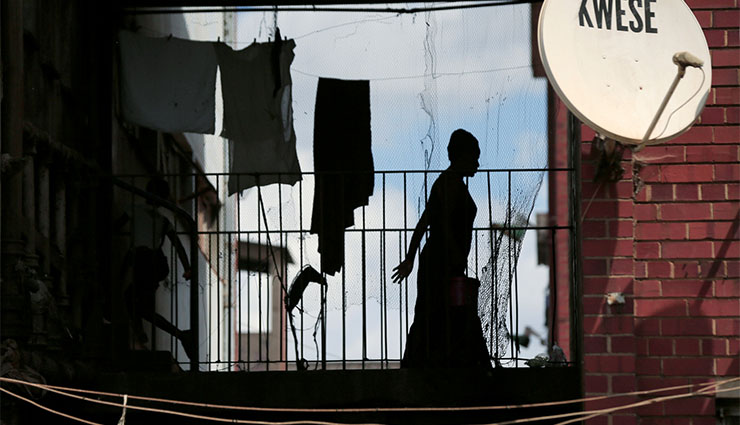
CREDIT: Adobe Stock/Reuters/Philimon Bulawayo
A 2020 US State Department human rights report on Zimbabwe released March 30, 2021, corroborates these claims, noting an escalation of attacks against women, including forced disappearances, torture, arbitrary arrests, and sexual assault.
“As long as government continues to use COVID-19 to trample on people’s human rights,” says WALPE Executive Director Sitabile Dewa, “we will definitely continue to record cases of violence against women. I am speaking to issues of freedom of association, rights to petition and demonstrate. It’s like these rights have been suspended and suspended together with the right of movement whenever COVID-19 restrictions have been initiated.”
In an October 2020 report, WALPE recorded 900 cases of gender-based violence between March and September. Of these cases, 70 percent were perpetrated by Zimbabwe’s security sector, based on victims’ testimonials.
The ZPP in its January 2021 monthly monitoring report also named state security agents as the major perpetrators of human rights violations during 2020. “This was largely under the guise of the enforcement of COVID-19 lockdown regulations,” the report says. Of this violence, a disproportionate number of women have been targets.
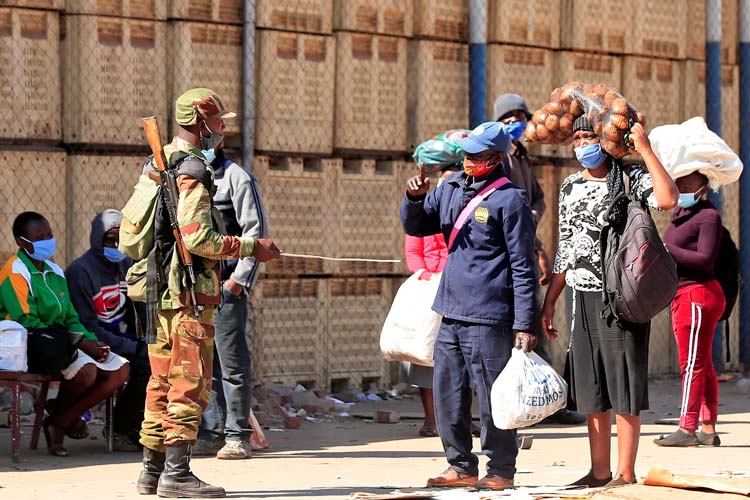
CREDIT: Adobe Stock/ Reuters/Philimon Bulawayo
“Those security forces feel that even if they committed a genocide, no one is going to bring them to book,” WALPE’s Gwangwawa says. “It is state sponsored, meant to silence dissenting voices, and one of those voices have been women.”
The army and police, however, deny their involvement.
“We do not agree that there is violence during COVID-19 enforcement,” says national police spokesperson and Assistant Commissioner Paul Nyathi, adding that some cases were “still under investigation.” Some of those cases include the May 2020 abduction and sexual assault of female opposition youth leaders Joana Mamombe, Netsai Marova, and Cecilia Chimbiri. Maphosa’s abduction is still unresolved, and no arrests have been made.
During the political violence of the last decades, women have often been the victims of sexual assault, with those surviving reporting stories of torture, rape, and genital mutilations. After Zimbabwe’s independence in 1980, the country suffered a series of ethnically motivated massacres against civilians, leading to an estimated 30,000 deaths.
The 2001 Land Reform Program, which forcefully and at times violently removed white farmers from their land in order to redistribute it to politically connected black owners, corresponded with a rise in violence against women.
Based on 2003 estimates from the Zimbabwe Women Lawyers Association, some 1,000 women—mostly female farm workers who were evicted with their white employers during the Land Reform Program—were forcibly held in militia camps in 2002 and subjected to sexual violence. The report states that the militia camps were run by groups affiliated with the ruling party.
More recently, during a national strike in January 2019, 17 people were killed and 17 acts of rape were committed by police and soldiers, according to a Human Rights Watch report released in March 2019.
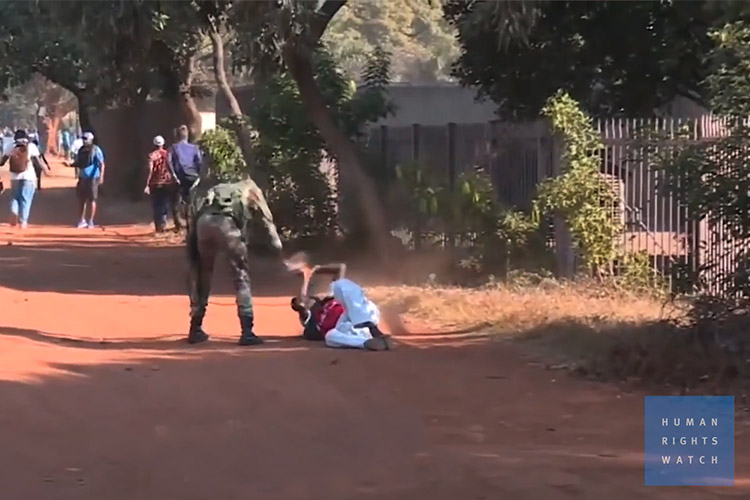
CREDIT: Human Rights Watch
Since the arrival in Zimbabwe of COVID-19 in March 2020, women’s organizations are seeing another sharp increase in attacks against females, with little accountability.
Ronika Mumbire, former chairperson of the Women’s Coalition of Zimbabwe, says women are an “easy target” in the restrictive environment of pandemic lockdowns and when there is no recourse for women who are attacked. “It puts them in a situation where they bear the brunt in cases of pandemics,” she says.
“It is even very unfortunate when it’s coming from the security forces. There are ways of enforcing laws without being violent,” she adds.
Bulawayo-based human rights activist Othilia Sibanda, 33, is one of the many 2020 abductees. She has been an activist since she was 14, protesting for equality for girls in school and later political, social, and economic rights.
In November 2019, Sibanda was sentenced to seven years imprisonment for taking part in the January national strike, an activity she denies. Her conviction was overturned in April 2020, and she was released on stringent bail conditions that demanded she refrain from activism. A few weeks after she returned home, Sibanda and her family moved to Nkulumane, a densely populated neighborhood of Bulawayo, over fears of increased state security surveillance at their home.
Two days before a planned July 31 anticorruption national demonstration, two unmarked vehicles arrived at Sibanda’s home and bundled her into one of the cars. During the drive, Sibanda was accused of being involved in the planning of the protests, something she denied, and was warned that this time around she “won’t make it.”
“I had heard many stories of sexual assault and torture, so yah, I was scared,” Sibanda says. “Then, one of the guys in front received a phone call after which the two agreed to leave me. That is when they drove to a bushy area and threw me out while the car was running at a high speed.”
Sibanda suffered some serious internal injuries but didn’t report her ordeal, fearing she would be jailed. Instead, she went into hiding for two weeks before returning to her family.
“When I returned, I noticed the same two cars who abducted me were stalking my house,” Sibanda says. “I stay away from activism as I fear for my life, constantly looking over my shoulders.”
Since her abduction, she has been afraid to talk to anyone without the company of her male relatives or husband.
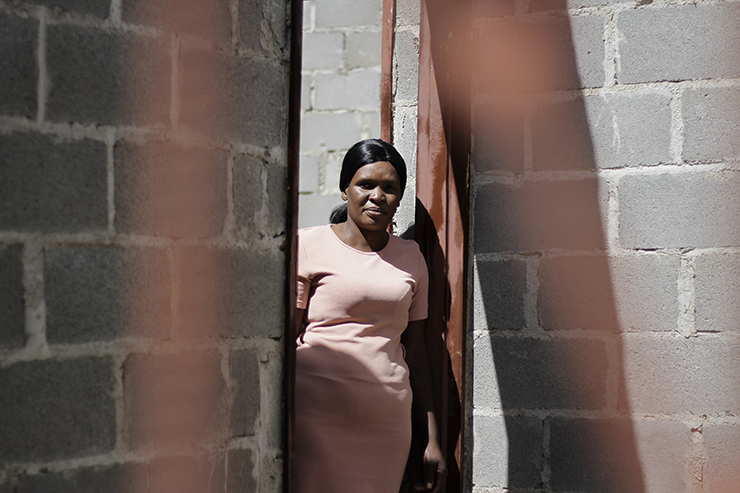
CREDIT: Tafadzwa Ufumel for Stanley Center
Chisirimunhu is a 53-year-old widowed veteran teacher who takes care of her two adult daughters and two minors in the city of Masvingo in the southeast of the country. The area is hot and arid and surrounded by the largest sugar plantations in Zimbabwe.
Chisirimunhu is a member of the Amalgamated Rural Teachers Union of Zimbabwe (ARTUZ) and is known as “comrade” by colleagues for her outspokenness in demanding fairer wages from the government.
On June 22, 2020, Chisirimunhu and other members of ARTUZ planned a peaceful protest at the Masvingo District Education Offices over what they called “slave” salaries, now worth $35 a month due to inflation from a high of $550 in 2018. That morning, Chisirimunhu met with the other teachers at the offices.
After the peaceful protest of around 50 people began, several police officers emerged from the offices armed with batons and rushed at the protestors, trying to grab them.
“I am asthmatic and I’m hypertensive [prone to bouts of high blood pressure], so while the other guys actually ran away, I couldn’t,” Chisirimunhu says.
This led to her being arrested and beaten by a police officer, which triggered an asthma attack. Chisirimunhu was taken to a nearby police station before being transferred to the Masvingo Provincial Police Headquarters in the evening, all the while being refused treatment for her asthma.
“I almost died,” she says, glancing over at her daughters seated adjacent to her in her compact living room.
The following day, Chisirimunhu was charged by the Masvingo Magistrate’s Court with inciting violence and breaking COVID-19 restrictions.
She was later convicted and given a 10-month prison sentence. In January, she was released on appeal with stringent bail conditions.
A few weeks after she returned home, Chisirimunhu’s neighbors warned her of an unmarked car lurking around her house. Fearing that these could be state agents monitoring her activities, Chisirimunhu now stays mostly indoors and teaches her students online.
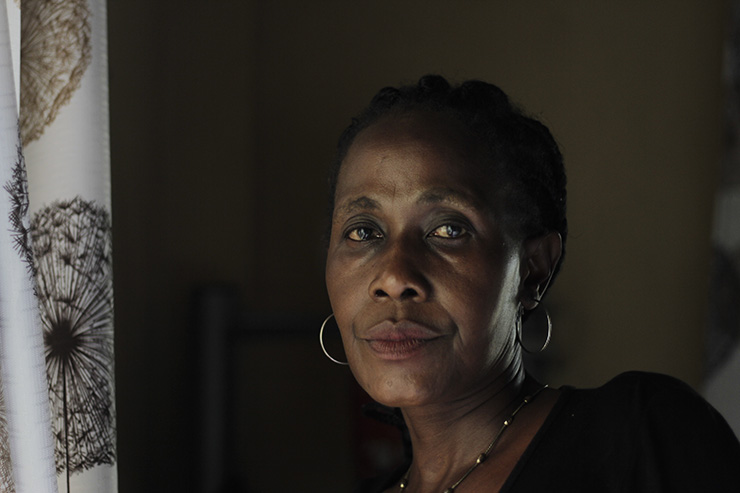
CREDIT: Tafadzwa Ufumel for Stanley Center
More than a year into Zimbabwe’s pandemic response, the government is facing a growing number of dissenting voices. A declining economy has inspired a surge in protests, demonstrations, marches, town hall meetings, petitions, lawsuits against the state, and the use of social media to air opinions or start antigovernment movements. The state has responded with laws that curtail the activities of opposition parties and civil society organizations along with their members—or using the state’s security apparatus to silence government critics by force.
When human rights abuses have been reported, the government has failed to respond. Part of the 2020 US State Department human rights report on Zimbabwe reads, “The government took very few steps to identify or investigate officials who committed human rights abuses, and there were no reported arrests or prosecutions of such persons.”
Further, a controversial law being pushed by ZANU-PF legislators could give the government more powers to arrest its critics. The Patriotic Bill aims to criminalize and punish citizens who “campaign against” national interests. The bill would also criminalize the peddling of what the government calls “falsehoods” undermining national interests. The government would be empowered to monitor private communications between citizens and officials of foreign governments, a move thought to be aimed at keeping opposition leaders from getting international support.
WALPE’s Dewa says this could make the situation even worse for women.
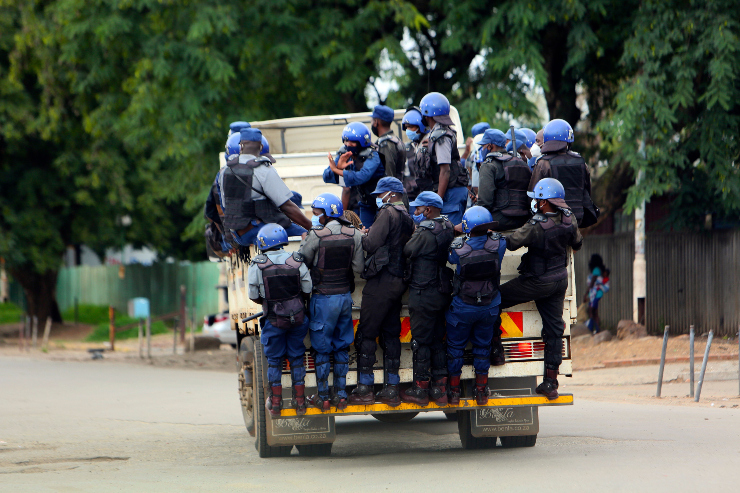
CREDIT: Shutterstock/ Tsvangirayi Mukwazhi
“Already, women are suffering from issues of patriarchy, gender-based violence, and all other social norms that continue to inhibit women from effectively participating in leadership positions,” she says. “When you top that with the Patriotic Bill, definitely women will fear speaking out and freely and actively participating in platforms where their honest views are regarded.” She adds that the bill focuses on stifling critical voices that will hinder women’s organizations already struggling to promote female inclusion in public spaces.
Othilia Sibanda, who hasn’t participated in social activism since she was abducted and beaten by state agents in July 2020, feels she has been permanently silenced by the campaign of fear wrought by the ZANU-PF government.
“Truly speaking, I always stay in fear,” she says. “I don’t even comment on anything or participate in civic society the way I used to do. I just fear for myself and my family.”
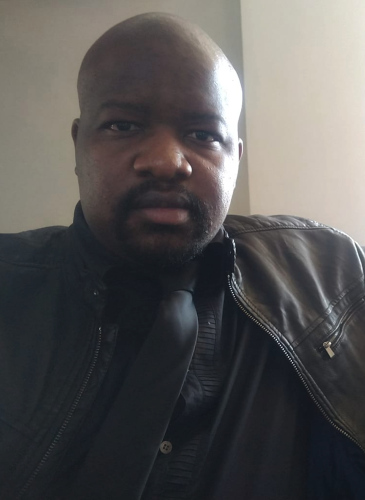
Tatira Zwinoira is a Zimbabwe-based award-winning journalist with more than six years of experience. He currently works for the private media house Alpha Media Holdings, which owns the four papers NewsDay, The Standard, Weekly Digest, and Zimbabwe Independent which Zwinoira writes for. Under these papers, Zwinoira covers economic, business, financial, humanitarian, women’s rights, political, and agricultural news in and around Zimbabwe.

Tafadzwa Ufumeli is an independent photojournalist based in Zimbabwe, who became a pacesetter in the Zimbabwean media industry through his news images covering social injustices and spotlighting human rights violations, primarily capped by police brutality.
COVID-19’s Impact on Atrocity Risks